Last week, Reddit user Savings-Actuator-571 started a conversation by posing the question, “What harmful ideas are being taught to children?” And thousands of people weighed in with ideas they heard as kids or have observed being taught to other children. Whether these lessons are taught intentionally to protect kids or learned through society and media, it’s important that adults are aware of what ideas are being taught so we can either shut down these messages or steer children in the right direction.
Below, you’ll find a list of some of these harmful ideas being sold to kids, so you can know what to look out for or what ideas to avoid accidentally passing on yourself. Be sure to upvote the responses you particularly resonate with, and then let us know in the comments what other harmful messages you’ve seen taught to children. Then if you’re interested in reading Bored Panda’s last article on the same topic, you can find it right here.
#1
Finish everything on your plate!
Image credits: 88TacocaT88
Kids are extremely impressionable. And while it may seem like they’re not always listening or paying attention, they are probably soaking up everything they hear adults say like a sponge. Though many moms and dads have the impulse to parent the exact same way they were raised, as it’s easy to repeat what we already know, this can be a surefire way to pass on the same harmful ideas that we were taught as kids. For example, if your father always forced you to eat all of the food on your plate, regardless of how hungry you were, you might think, “Hey, I turned out fine. I can teach my kids the same thing.”
However, if you actually take the time to stop and consider how that affected your relationship with food, you might decide that’s not the best message to be spreading to your little ones. When we take time to consider what’s being taught to children, we might realize that there are harmful ideas being slipped into our lives all the time. And although it’s too late to correct how we were raised, we might be able to make some things easier for the younger generations.
#2
That saying you’re sorry is showing weakness.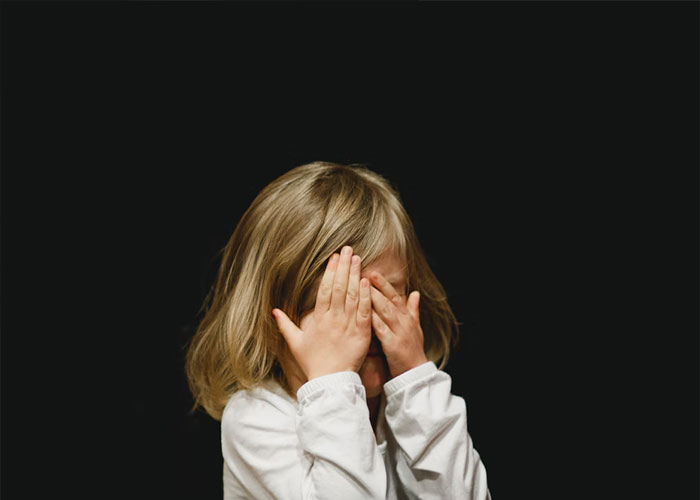
Image credits: jdith123
#3
That questioning authority is a bad thing.
Image credits: Spluff5
There are also ideas being passed onto kids through society and media. I’m sure we all experienced this as kids as well, regardless of what decades we grew up in. But as children are becoming more and more plugged-in, with access to cell phones and social media at extremely young ages, it has become much harder to control what information they have access to. In 2018, the average age for kids to start using social media was 12.6, but it’s likely only gotten younger since then, as Cleveland Health reported last year that half of kids between the ages of 10 and 12 are already using social media apps.
So what’s the impact of all of this internet use on kids? Well, kids online at a young age are likely to take part in dangerous online behavior such as having online-only friends (that could be adults for all they know), visiting sites not intended for young audiences and participating in online harassment and bullying. Kids that spend more time online have also been noted to experience behavioral changes like becoming more irritable, experiencing increased anxiety and seeing a drop in their self-esteem.
#4
Abstinence only sex education. Seriously, teens are going to have sex, even when told not to. Teaching them to be safe while doing it is not going to increase the odds of them f*****g.... It is just going to decrease teen pregnancy and sexually transmitted infections.
Image credits: CylonsInAPolicebox
#5
External validation.Constantly chasing likes and followers. The unbearable weight of keeping up appearances. Lives and bodies that aren't perfect seem to have no value.

Image credits: MzFrazzle
#6
That EVERYONE should go to college. Such BS.This is the myth that school districts use to justify the near total elimination of vocation programs.

Image credits: Edward_the_Dog
According to child psychologist Dr. Kate Eshleman, adults need to keep a close eye on their little ones when they’re online because it’s easy for them to enter dangerous territory. “Kids don’t have the cognitive and executive functioning to think through harmful situations and why those might be a bad idea,” Dr. Eshleman told Cleveland Health. “So sometimes they’re placing themselves in physical risk.”
This could include sharing too much information like their address, where they go to school, their parents’ names and professions, their phone numbers or even worse, credit card numbers or social security numbers. Kids can even be pressured to partake in dangerous viral trends, which often circulate on websites like TikTok and Instagram. And of course, it can be extremely difficult for children to know whether a person they meet online is a predator. Even people they do know can cyberbully them, but kids often don’t understand when they should and shouldn’t engage. It’s best to teach them that they should limit their time online in the first place, contrary to what they might be hearing from the world and their friends.
#7
that crying is bad. parents don’t learn to regulate their own emotions and expect their kids to do it. then they start suppressing crying. and then they grow to be adults with zero emotional regulation. it’s a cycle.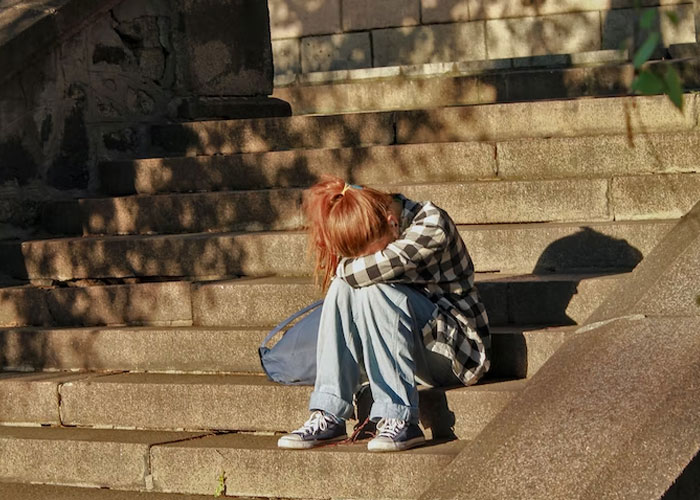
Image credits: lonelysof
#8
Staying quiet means good behavior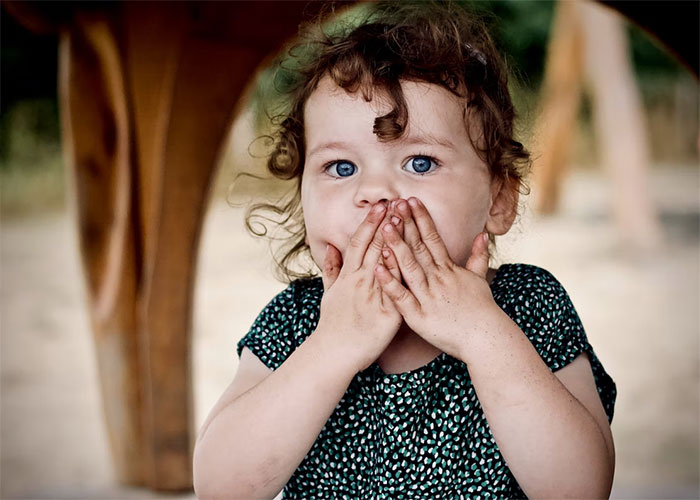
Image credits: earthycarl
#9
Not specifically taught, but moreso an effect of how we teach kids.Smart and gifted kids in school aren’t challenged enough. Those that do very well, even in a specific subject instead of overall, aren’t taught proper work ethic because they excel already and don’t need to work as hard. Since they aren’t challenged early, they don’t learn how to work when challenged, and they end up doing poorly in school later in life. I know it’s hard to do, but we really need to be aware that we’re setting kids up to fail when we don’t properly challenge them.
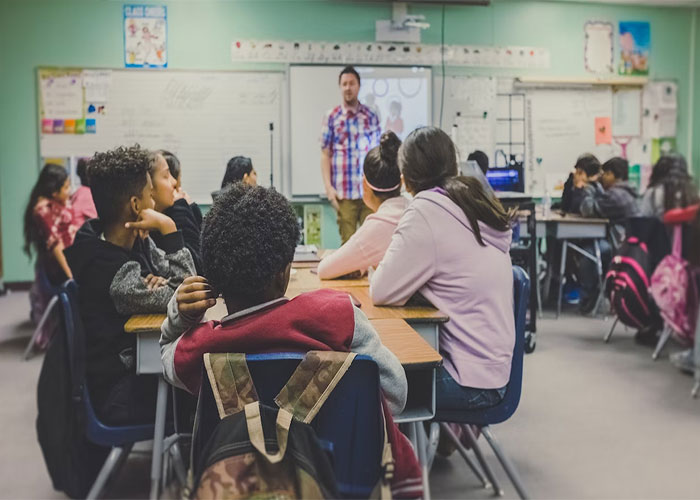
Image credits: Damurph01
Another potentially harmful idea that children are sometimes taught is that they should be scared of everything. Well-intentioned parents sometimes shield their kids too much and teach them that there is danger lurking around every corner, from strangers, school shooters, neighbors, the internet, films and even foods they could choke on. While it's important to be honest with our kids about the inherent risks in the world that they should be cautious of, kids should also be allowed to embrace their natural bravery. Kids are usually not scared of much, until they have a reason to be, and the last things they should be worrying about are falling off the swings or having an intruder enter their homes. They should be free to dive head first into life, and yes, they might break a bone or chip a tooth now and then, but that builds character. Raising children that are too scared to ever try anything new will not set them up for success later in life.
#10
“Anyone in this classroom able to play piano?” An elementary school teacher asks.Nobody raise a hand until this one little girl doubtfully raise her hand.
“Really? You can play piano? Please show us how you play.”
With a heart pounding so hard like it’s never before, the little girl plays a simple classic song. Definitely not perfect; missed notes here and there but she keeps going. After she finished playing, the teacher says “What was that? It’s not a real song. Anyone else able to play piano?” Everybody laugh. Later, the little girl begging her parents to let her quit her piano lessons.
It happens to me when I was about 8 years old.
If people are wondering why kids are mean and bully, the answer is: adults taught them to be.
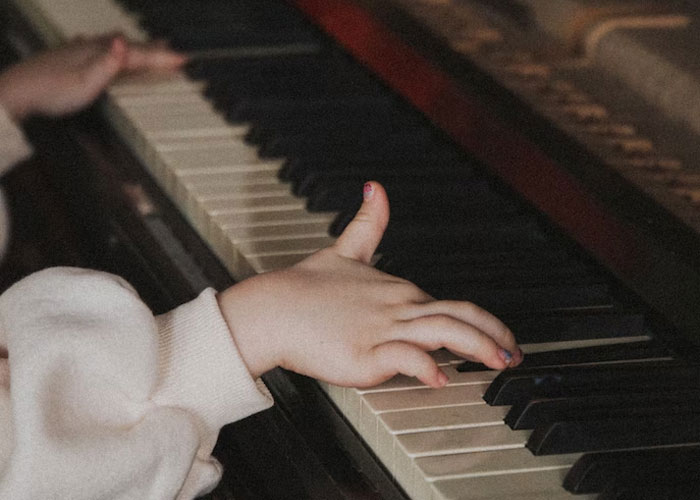
Image credits: Big-Bell6898
#11
That they have a choice in their gender.#12
“Boys don’t cry!”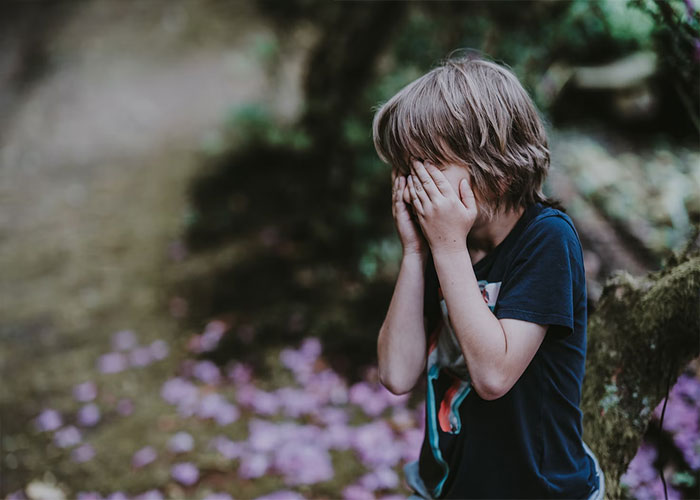
Image credits: VeryCreativeSwede
Arthur C. Brooks wrote an article for The Atlantic explaining just why we should not teach our kids to be too fearful of the world, and one way he mentioned to assuage concerned parents' fears is to look at the actual facts. He notes that it has actually never been safer to be a child in the United States than it is today. Despite how focused on negative news media cycles always seem to be, Brooks writes that, "Since 1935, the number of childhood deaths between the ages of 1 and 4 fell from 450 to 30 per 100,000. It has fallen by nearly half just since 1990, and the decreases in other age groups are similarly impressive." Plus, with all of the technology available to us today, in terms of keeping track of our children and advancements in the medical field, kids have become pretty much invincible. Of course, there are certain rules to always keep in mind like "stranger danger" and looking both ways before crossing the road, but kids should not be scared of simply being kids. They have the rest of their lives to worry; let's not make them do it from a young age.
#13
They don't have an opinion. I'm breaking generational curses by simply listening to my kids.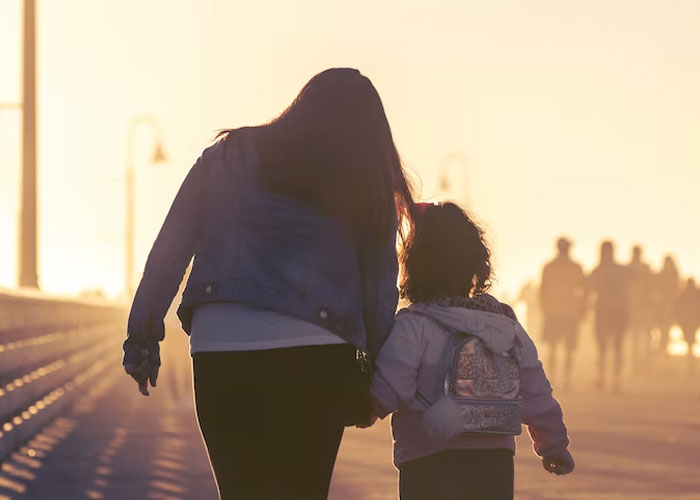
Image credits: LovableLayla
#14
I used to work at a movie theater back in the day and I'll never forget witnessing a kid pick up their trash on their way out like a responsible person and their mother instructing them to put it back down because it is not their responsibility. Probably way more harmful things being taught to kids, but the story just came back to my mind.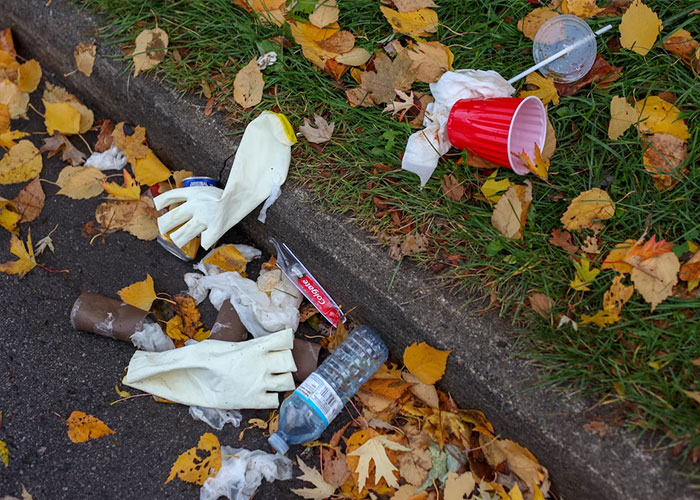
Image credits: mrada34
#15
Your parents are always right.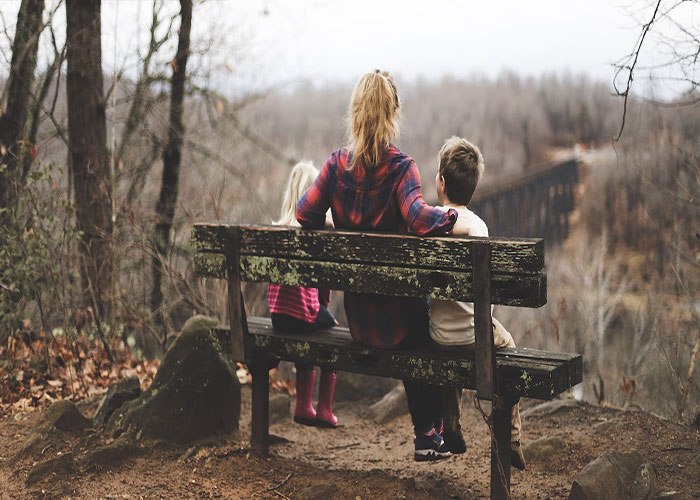
Image credits: holaxamigo
Another tip Brooks provides for keeping our kids safe without instilling a fear of the world into them is being careful of how we frame advice. He notes that when we inform our children of threats, we often deliver the message in a way that is not specific enough, and research shows that a "blanket attitude" towards fear is not always very effective. "If you want to offer a child a warning to make them better prepared, focus on one specific danger they might face and how to deal with it," Brooks explains. "Instead of saying, 'People will try to take advantage of you at college,' say, 'If someone is trying to get you to drink too much, avoid that person.'"
#16
That your worth is in anyway linked to the number or ranking from an assessment. For most people how you do in standardised tests is not as important an indicator for the rest of your life as we bring the children up to believe it is.My kids are both in primary school. For me I hate that this focus on assessment results at this early stage is more important than their learning journey.
I am not sure if that makes sense but a 7 year old should be learning and discovering and not worried about the assessment tools used by the school''s reporting and administration processes.
#17
That if you don’t do good in school you won’t or can’t be successfulBut at the same time the gravity of how important it is to study
People who study can be successful but it doesn’t guarantee success.
What will make you successful however is being really good at something _and_ practicing it.
#18
Welp time to get downvoted.I’m a proponent against bubble wrapping kids feelings. I’m not saying let’s bully and abuse the children, but we don’t let them feel tough things anymore. And I’m not here to get political or anything. I’m just saying, kids aren’t encouraged to explore trails of thought without acting on them, they’re not encouraged to be scared or push themselves physically and mentally, they’re not encouraged to challenge status quo and I mean real status quo, not the whole “society will tell you this but don’t listen little timmy” meanwhile every other kid is being told that thing and not doing it. Yes let kids laugh, but also let them know it’s okay to cry, and if they want to hold back the tears sometimes, that’s okay too, just, don’t go your whole life trying to keep things “good”. Bad things in our lives make us better sometimes and we don’t always have to suppress that as terrible as it sounds.
Brooks also recommends that parents try to counteract "negative primals", or assumptions that the world is threatening, from the outside. When your children are out of the house, at school or hanging out with their friends, there's no telling what they'll be exposed to. But if they come home stressed and worried about all of the dangers that the world presents, it can be helpful to ease their minds and bring them back down to reality. Brooks explains that with his own daughter, he does not sugarcoat the truths of the world, but he does remind her to focus on the positives. Yes, there are dangerous things and people out there to be cautious of, but they're not everywhere. In fact, there are plenty of wonderful things and people in the world as well. "Instead of teaching our kids fear primals, let’s teach them love primals, which neutralize fear and put something good in its place," he writes. "Let them know that people are made for love—we all crave it, and we can find something lovable in just about everyone we meet."
#19
"You NEED to have children!"#20
That one shiny fish book in elementary “the rainbow fish”. Where the main character had all these beautiful scales, then the other fish got jealous of/resenting him. So he gave all his scales to everyone. It was suppose to teach kids about sharing?From a disturbing metaphor involving—let me say it one more time—self-dismemberment to a message that basically says, “Don't be special. If you are special, people will hate you for it and the only way to be happy is to shed yourself of that special trait,”
#21
The “be yourself” trope. It’s fine for things like hobbies or interests, but some people are just inherently toxic whether it’s genetic or a learned behavior. And then people justify their bad behavior by saying they’re just being themselves and if other people don’t like it that’s their own problem. There’s no incentive to curb harmful behavior and kids are being taught that it’s okay to act out because it’s just who they are.Another seemingly harmless but negative idea many parents accidentally instill in their children is the idea that crying is something shameful or that it displays weakness. "Stop crying" or "don't cry" we often hear parents say. And while they may just want their little ones to keep it down in public, parents who use these phrases can quickly teach their children to bottle up their emotions, and once that's been taught, it can be very challenging to undo. We should be teaching our kids that emotions are nothing to be scared of or ashamed of, as Christina M. Ward notes in her article 'We Need To Stop Teaching Our Kids Not To Cry!', and that displaying sadness does not mean that you're out of control. It just means you're human, and you know how to feel.
#22
Overworking to death#23
Telling kids they have to be nice to everyone. If people are mean to them they won’t fight back with that mindset. They need to know it’s okay to set boundaries without it being an issue. Respect and boundaries are so important for kids.Zero tolerance policies in general are absolutely backwards.
#24
That you can do anything if you set your mind to it. Because it's not true. There are external forces that can hinder us from reaching our goals. There's privilege, and lack thereof. It doesn't take just pure mindset to reach a goal.Letting kids cry allows them a healthy emotional release, and it opens them up to being more empathetic towards others. If a child is told that they should not be crying because it shows weakness, they will likely look down upon their friends and future partners when they cry as well. But if they understand that sometimes, you just need to let out a good cry, they will be more understanding when others are feeling emotional as well. All kids, but especially boys, should be told from an early age that displaying emotions is healthy and normal, and having to bottle them up is a recipe for disaster.
#25
If you don’t play five different sports and make straight a’s in the process you are a failure in life. I’m from NC and I go to a school that has patent that do this so they look good on Facebook, thankfully not my parents.#26
I’m dyslexic, but no one would test me as a kid because my grades “weren’t low enough”. Nope, instead I had to be in tutorials for ALL OF ELEMENTARY, where I still wasn’t getting help/ understanding anything. I thought I was stupid until I found out about my dyslexia when I was in 7th grade. I cried all night. The idea that in order to be tested for something like dyslexia (which is really common!) you basically need to be failing is a really harmful idea to engrain into kids. Like I said, I though I was stupid because I couldn’t spell or understand math. Now I’m all A’s. Big difference it makes to just KNOW and get help. I never actually did get help or accommodations, btw. BUT, I’ve done my own research on how to help myself. So, yeah. There’s my 2 cents.#27
"Tattling" is bad. That kind of mentality is what leads adults to say nothing when they hear/see domestic violence and various forms of neglect, because its "not their business".I hope you were not taught many of the ideas on this list when you were a child, but if you were, know that you're not alone. We can't change the past, but we can choose what lessons and ideas we decide to pass on to younger generations. Hopefully, over time, we can phase out these harmful ideas and ensure that kids are taught more valuable and positive lessons instead. Keep upvoting the responses you'd like all of your fellow pandas to read, and then feel free to continue the conversation down below in the comments. And if you're interested in reading another Bored Panda article on the same topic, check out this story next.
#28
I have one.This is very common in my country. You know kids run a lot, and they fall a lot. Most of the time (luckily!) they do not get hurt seriously. Sometimes, they simply are just fine. But they cry regardless. I was one of those kids.
Whenever that happen, parents would rush to their kids, and they slap on the ground (or whatever object near by) saying “Punish the ground for hurting my baby!”. Now, that may sound sweet if you are that kid, but gradually it could teach the kid something so dangerous: When you fall, it is something else (or someone else)’s fault. Kids will grow up blaming everything around them for their failures, before questioning themselves.
I remembered clearly this time when I just fell off the ground while playing, cried my lung out, and my whole family was in a mess. Especially my dad. He was so worried, checking my (totally pain-free) body for any wound, and kept asking “What made you fall? Was it a rock? Or was it your friend? Did she push you?”
Dad - I wanted to say - I really just fell off myself.
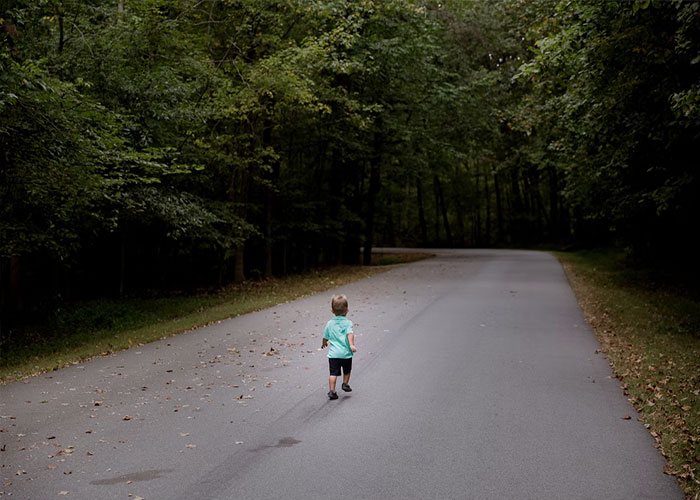
Image credits: Own-Text7602
#29
That different is bad. That if I don’t understand it, there must be a conspiracy. If I don’t win, the opponent cheated.#30
It isn’t ok to fail or make mistakes. People aren’t perfect and you will make mistakes. Just don’t set yourself up to make ones that can hurt or kill others (drink or drug to the point where you don’t know not to drive or assault someone).#31
That they’re dumb and don’t know anything. Kids are incredibly bright and will call you out on your s**t.#32
As I was leaving elementary school, they decided to implement some sort of “reading level”. You were not allowed to read a book that was higher than your “level”.Now, for context, I am avid reader. I got an eighth grade level of reading. I was reading Sybil by sixth grade. However, I do not do well in subjects such as math because it doesn’t make sense to me.
So, we got tested and I got my score, a nice, high score. Something my parents would be proud of me for.
In the schools library, I go to grab a book I thought was interesting. A Secret Garden I think it was called? It was a high level, so of course, nine/ten year old me thought I was allowed to read it!
My goddamn fifth grade teacher yanked it from me, and I wasn’t allowed to read it because I wouldn’t understand it and gave me a picture book. I tried to protest and say I got a good level, but he said no, I didn’t and I was lying.
To this day, I hold massive resentment towards him and the system that says, “You can’t do this because you got a poor grade on it.” Think of how easily that could turn people away from doing things?! How many more kids could we get into reading if we didn’t say, “No, you can’t because you won’t understand.”
Then, if they won’t understand, help them. Teach them. Isn’t that why we’re here? To teach kids?
Anyways, I looked up a book I received for Christmas because I wanted to learn how to write reviews for autobiographies.
I’m disgusted to say that stupid level system is still around. The system is awful, we need to change it and start encouraging and, you know, being adults to our kids instead of letting things be as they are.

Image credits: Good-Negotiation-272
#33
That everything they're good at/enjoy as a hobby needs to be monetized.I played competitive piano and all the time was told "you'll be a great teacher, work from home, etc."
I liked making jewelry and was told "you should make lots of those then sell them at the local market/online/etc.
I liked writing poetry and short stories and was told "you should be a English tutor/newspaper columnist/sell your short stories /publish a poetry book".
I have pretty much stopped doing all of those things, and if I do something creative nowadays, I keep it to myself because otherwise, me just enjoying something to enjoy it is judged as a waste of time if I'm not making money from it.
#34
That they need to have everything lined up by age 16-18 and if they don't, it'll have serious consequences.Bad grade? No one will ask about it in a couple years. No friends/social life? Get some new ones in college. Don't know what to do with your life yet? Join the club, honey, we got jackets, most of us grownups aren't sure either. The amount of high school kids I've seen beating themselves up, even having full breakdowns over all these things is honestly worrying. 18 is not a deadline. Your life isn't set in its tracks forever by 20. Who on earth is teaching them these things?!
#35
That children can't be sad. Children can be sad and as someone who had struggled with mental illness ever since I was 8, I can confirm. Children are humans just like us, they have emotions. You can be depressed even if your age isn't in the double digits.I would also like to add another one; the "It will get better" and "Just put on a happy face" mentality. Unfortunately, life is a b***h. It will not get better. **You** get better. Depression doesn't fade away just because you are smiling. I wish it was that easy, but it isn't.
Stop trying to reassure and make excuses for your child's mental health. Actually, get your a*s up and help them.
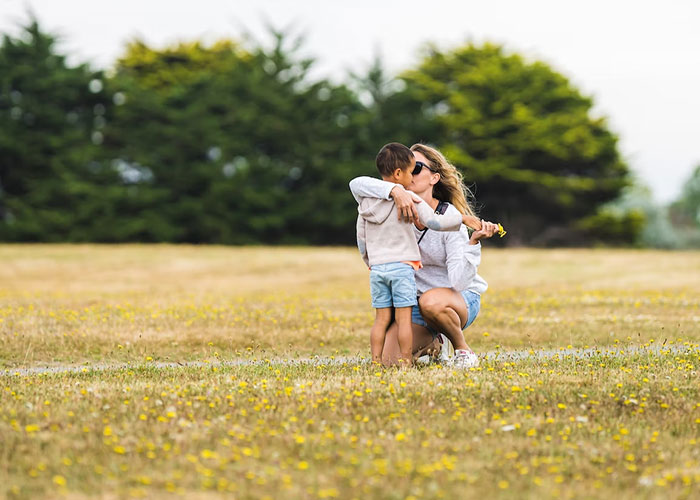
Image credits: imaginaryghost2
#36
That if someone teases/bullies you, that person may like you. Basically teaching kids at a young age that it's 'ok' when someone is being mean and rude to you.
Image credits: ohmystelena
#37
That anyone you spend time with of the opposite sex is automatically your boy/girlfriend. Instills the idea that you can only be friends with those of the same gender as you, which is messed up."What did you do at break time today?"
"I had fun playing with Sarah."
"Oooh, is Sarah your girlfriend?"
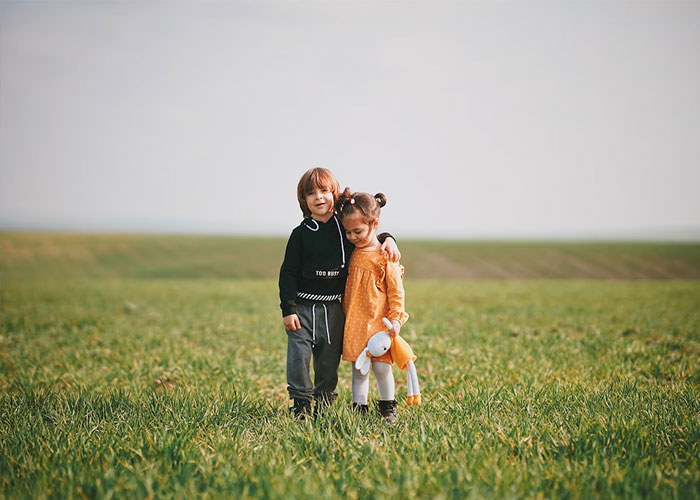
Image credits: MegaMachina
#38
That everyone can do everything at competitive levels and win. And that everyone gets a trophy for trying.There’s a lot of nuance to this, because you also don’t want to not allow kids to try new things or activities that interest them. But my god it’s more than okay to have winners and losers in sporting events or kids that are awarded differently for excelling at an art. There’s a powerful lesson in being humbled and respecting that some people (even kids) are really just next level skill sets. Same thing with learning to lose respectfully / honorably. That said there is so much more to any sport/hobby/art than winning or losing. Even if you aren’t the best at something there is plenty to take away from it, and you don’t need participation awards to prove anything.
Seems like a lot of adults struggle with accepting that someone else is more capable at given tasks or activities and I think that some of that comes from never having to deal with being the “loser”.
#39
“Minor attracted persons”. Pedophiles. They’re pedophiles.#40
That your right to privacy no longer exists. Lack of privacy is being normalized on all levels of society.Parents posting every little picture of their child up til adulthood is so f****d up imo. They can't consent to that and then their whole life history has been willingly given up by their own parents.
Government and big businesses should not be allowed to know every tiny detail about us. Listening/recording us will hurt all of us.
#41
That if anyone disagrees with you it’s wrong- the best thing about this world is all the opinions, but it’s how some people show their opinions that’s wrong. Also, wherever you are, people will dislike you for who you are. Stop whining and get over it#42
Parents who are telling their kids that they can openly reject a line of thinking they don’t like.On a bit of a separate note, I’m seeing a lot of comments about gender identity and sexuality, most of which are saying we aren’t letting “kids be kids” and that we are forcing them to think about their gender. I knew my gender in 1st grade, and I knew I was attracted to women in 2nd grade.
Part of being a kid also means developing crushes, having your first kiss (for some), or learning about who you feel comfortable being close next to. I’m not seeing anyone here mentioning how normal it is for Herero boys to say “I have a crush on a girl at school” so let’s also let kids be able to say “I feel like a girl” and believe them when they say it. If they’re wrong, they’ll admit it later. Y’all think kids are going to keep up a facade sexuality forever? The f**k?
Edit: source - am teacher
#43
That staying back a grade is a bad thing. It’s not. If you need extra time to learn something, take it! That’s so much better than not ever learning it and then continuing to do poorly in all your future classes, never being able to learn any of the content because you were never properly taught the basics when you were younger, causing you to fall extremely far behind in life. All this would’ve been avoided if you would’ve just been held back one extra year, maybe two in the earlier years of school. Where I live, basically nobody gets held back even if they’re failing. It takes practically nothing to pass a grade and it’s going to set up a lot of kids for failure.#44
That they can do anything and not face consequences.And I don't mean that in a "you wanna be an astronaut? That's awesome!" kind of way, I mean that in "anyone who tells you no is bullying you"
I've got a 16 year old at my second job who tried to get me fired because I expected her to do her job when she was hungover. Sorry, but you chose to drink the night before a shift. Live with the consequences.
At my main job in a school, I've got a 12/13 year old who thinks he can ignore the staff and get away with it. On Thursday, because I escalated the situation to his head of year, he said that I was a weirdo and noone even likes me anyways. (I really started looking inwards at that and re evaluating my entire personality, especially with how creative the insult was /s) I asked him to change his shoes and when he didn't I told him he couldn't play football. Then he got another kid to give him their trainers.
Today, I've overheard a mother say "surely it's illegal to make a kid carry their school bag, a Chromebook (that the school has lent the child for free) and their PE kit but not give them a locker" ... I'm sorry what??
It really feels like we are teaching our kids to be victims who believe they are all special little heroes and it's never their fault if something goes wrong.
#45
That everyone is a winner.#46
That a child can’t have boundaries because they are a kid.#47
That your worth is tied to obedience and functioning. Your punished for many things, often with scorn and anger, even when you’re still very young. It can be very impactful on your life and as a das it often breaks my heart hearing what people tell their children when they are emotional. Examples being „Stop crying, it’s nothing“ for the most basic and „if you don’t stop crying, there will be consequences X“ to amp it up a little.#48
Follow the expected path to your 20s instead of using all the info on the internet to make whatever idea you have a reality now#49
If you feel like you don't know what you are doing with your life, remember things that you would lose yourself in as a kid; things that really held your interest. Those are your natural inclinations, and what you should be doing for work is in there somewhere. I would meditate on that. You've always known what you wanted to be when you grew up, but some adult pushed their own ideas of what you should be when you grew up onto you and stifled your own creativity. Wake it back up. The Mozarts and Leonardo Davincis and Wozniaks of the world simply held on and followed that inclination. They weren't necessarily geniuses. They just had passion to keep them going when what they were doing was extremely difficult.#50
Saying "parents aren't perfect" as a justification for toxic or abusive parenting.#51
you have to respect ppl that are older than u, even if they are wrong#52
Lack of conformity and daring to express yourself can result in lost education.Kids being suspended from school because they dared to express their individuality. Whether its clothing, dyed hair or whatever. None of it really matters compared to sending kids away from their education.
#53
The worst one I ever witnessed was a single father of a two year old girl who was leaving a social gathering with his daughter, as it was time for her to go to bed. He picked her up and walked her from one guest to the next, strangers and friends alike, making her give each guest a hug and a kiss goodnight. Whether she wanted to or not did not matter to him, she was going to do it because he thought he was teaching her to be polite. I pulled him aside and gave him my thoughts on what I saw. By making her kiss people she did not know, he was violating her boundaries and making it much easier for a pedophile to touch her inappropriately in the future. Not only might she not object, she may not talk about it either. Because an adult asked her to, meant it was expected of her, right? He was aghast at his own lack of foresight, thanked me for my perspective, and promptly ended the practice.#54
That they are somehow personally responsible for saving the f*****g environment.#55
Teaching them they’re responsible for how other people feel “mommy is so sad you won’t hug her” child then feels obligated to hug her to make her feel better. Think about what this means as an adult…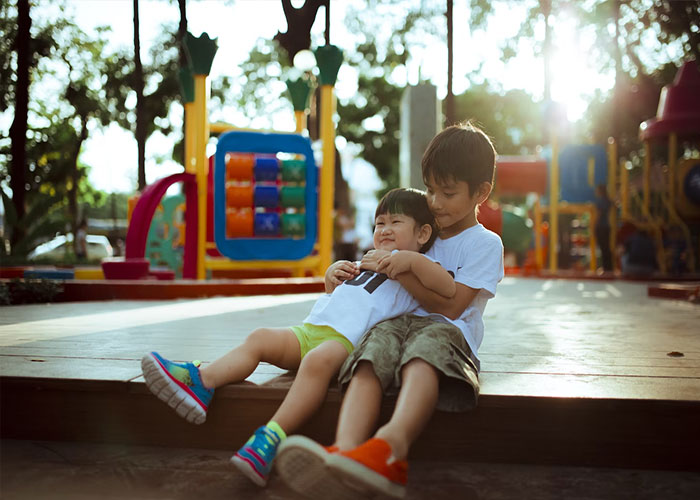
Image credits: Cellar_door_1
#56
Buy buy buy work work work buy buy buy work work buy die#57
Misogyny. Toxic gender roles. Whatever else Andrew Tate is shoveling down the throats of his young and impressionable audience. I've seen kids as young as middle school age repeating some of the insane s**t he says, to their own mothers.#58
That the reason to behave and do the right thing is to avoid eternal punishment from mommy and daddy's imaginary friend in the sky.#59
That you should always go ‘above and beyond’ or whatever. Your workplace wont care and give you more work.#60
1) Parents thinking mental health issues don't exist2) Parents are always right
3) If you question something that has been going on since long, you're wrong
4) Religion.
#61
That boys are bad... And girls need to be more like boys in order to be successful in life...#62
Politics. Parents that push politics on their children are the worst. I used to hang out with this kid in my neighborhood when I was growing up, and his dad was the most hardcore atheist I’ve ever met to this day. He would tell his son that all religious people are stupid and he even tried to get him to convince me that my parents were stupid for taking me to church. If you do that to your kids — You’re a bad person.#63
That all males are perverts and there are no female pervertsfrom Bored Panda https://ift.tt/ISUQ5lA

